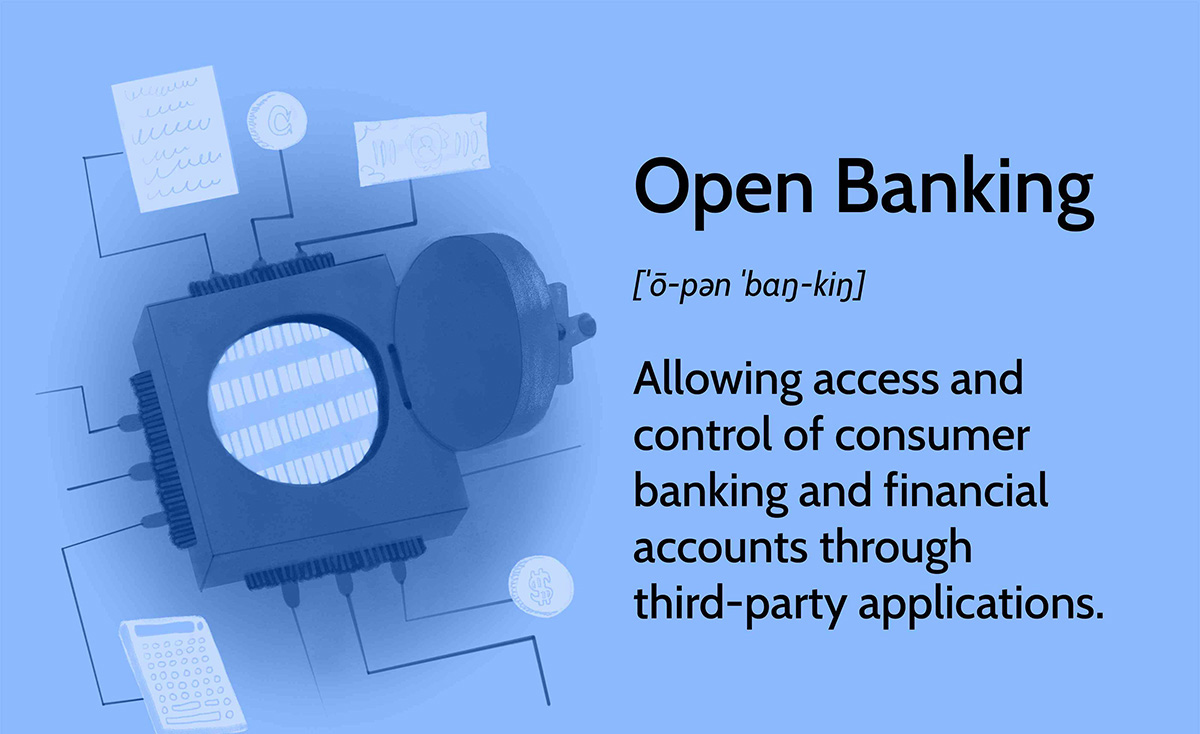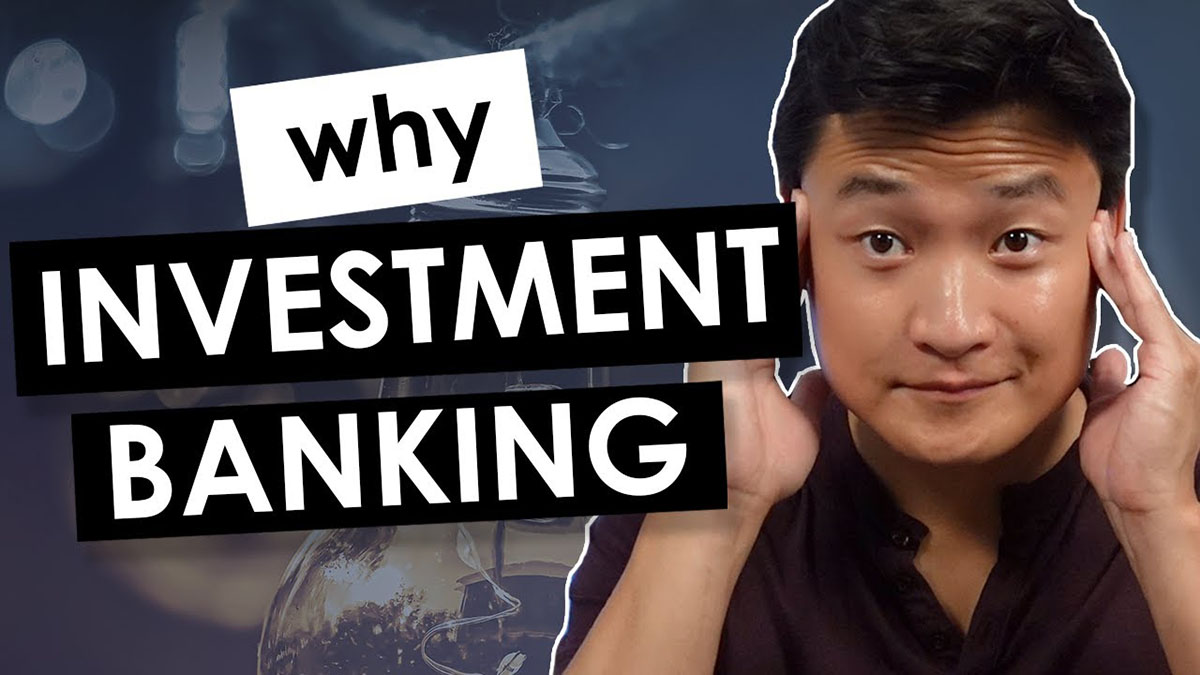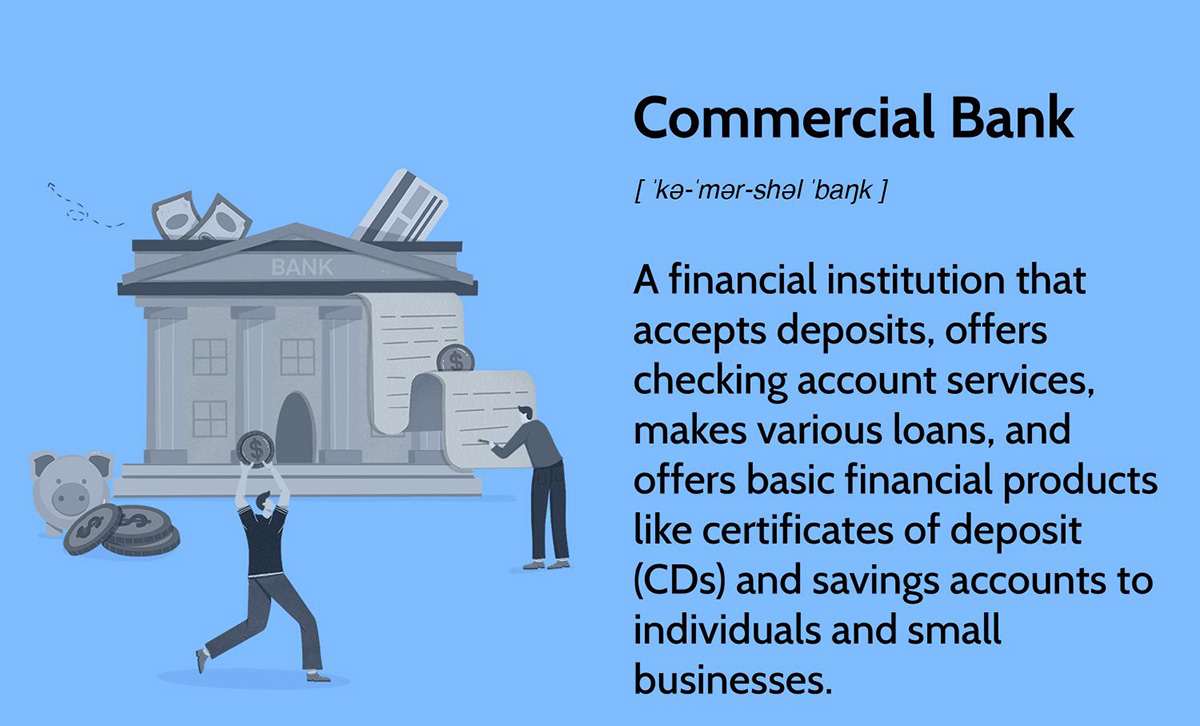

Finance
Why TMT Investment Banking
Modified: December 30, 2023
Discover the world of TMT investment banking and how it intersects with finance. Explore the opportunities and strategies that drive this dynamic industry.
(Many of the links in this article redirect to a specific reviewed product. Your purchase of these products through affiliate links helps to generate commission for LiveWell, at no extra cost. Learn more)
Table of Contents
- Introduction
- What is TMT Investment Banking?
- Benefits of TMT Investment Banking
- Role of TMT Investment Bankers
- Trends in the TMT Investment Banking Industry
- Risks and Challenges in TMT Investment Banking
- Key Skills and Qualifications for TMT Investment Bankers
- How to Get Started in TMT Investment Banking
- Conclusion
Introduction
Welcome to the world of TMT investment banking! As technology, media, and telecommunications continue to drive the global economy, the importance of TMT investment banking has skyrocketed. TMT stands for Technology, Media, and Telecommunications, which are three interconnected industries that are constantly evolving and shaping the way we live, work, and communicate.
TMT investment banking is a specialized sector within the broader investment banking industry. It focuses on providing financial services and strategic advice to companies operating in the technology, media, and telecommunications sectors. These services can include capital raising, mergers and acquisitions, initial public offerings (IPOs), and financial restructuring.
Now more than ever, TMT investment bankers play a crucial role in facilitating mergers and acquisitions, helping tech startups raise funds, and providing strategic advice to companies navigating the rapidly changing TMT landscape. They are at the forefront of the technological revolution, helping companies leverage innovation and digital transformation to drive growth and remain competitive in their respective industries.
The TMT investment banking industry offers a myriad of exciting opportunities for professionals who possess a deep understanding of technology, media, and telecommunications, as well as strong financial acumen and analytical skills. Whether you are a finance enthusiast, a tech enthusiast, or both, TMT investment banking provides a unique and challenging career path.
In this article, we will explore the world of TMT investment banking in greater detail. We will discuss the benefits of TMT investment banking, the role of TMT investment bankers, the latest trends in the industry, the risks and challenges they face, the key skills and qualifications required, and how to get started in this field.
So, if you are interested in the intersection of finance and technology, media, and telecommunications, strap in and join us on this exhilarating journey into the world of TMT investment banking!
What is TMT Investment Banking?
TMT investment banking is a specialized sector within investment banking that focuses on providing financial services and strategic advice to companies operating in the technology, media, and telecommunications industries. Technology, media, and telecommunications are three rapidly evolving industries that have a significant impact on modern society.
Technology: The technology sector encompasses companies involved in the development and sale of software, hardware, artificial intelligence, cybersecurity, e-commerce, and other innovative technologies. This includes established tech giants, such as Apple and Microsoft, as well as emerging startups with disruptive ideas.
Media: The media sector includes companies involved in the creation, distribution, and monetization of content. This includes traditional media outlets, such as television networks and newspapers, as well as digital media platforms, such as streaming services, social media networks, and online publishers.
Telecommunications: The telecommunications sector comprises companies that provide communication services, such as telephone, internet, and wireless services. This includes telecommunication companies, mobile network operators, internet service providers, and infrastructure providers.
TMT investment bankers play a critical role in facilitating financial transactions and strategic decisions within these industries. They assist companies with a range of services, including mergers and acquisitions, capital raising, IPOs, debt and equity financing, financial restructuring, and strategic consulting.
One of the key aspects of TMT investment banking is its focus on understanding the unique dynamics and challenges of the TMT industries. Unlike traditional investment banking, TMT investment bankers must stay up-to-date with the latest technological advancements, changing consumer behaviors, and evolving regulatory landscapes.
They need to anticipate trends, identify investment opportunities, and provide valuable insights to help companies navigate the complexities of the TMT landscape. This requires a deep understanding of not only finance and business strategy but also technology, media, and telecommunications trends.
In summary, TMT investment banking is a specialized sector within investment banking that focuses on providing financial services and strategic advice to companies in the technology, media, and telecommunications industries. TMT investment bankers play a crucial role in helping companies navigate the ever-changing TMT landscape and capitalize on opportunities for growth and innovation.
Benefits of TMT Investment Banking
TMT investment banking offers a range of benefits for individuals pursuing a career in this field. Here are some key advantages of working in TMT investment banking:
- Exciting and dynamic industries: The technology, media, and telecommunications industries are fast-paced and constantly evolving. Working in TMT investment banking allows you to be at the forefront of these industries, working with innovative companies and helping shape the future.
- High-growth potential: The TMT sectors are known for their high-growth potential. Tech startups can achieve rapid growth and disrupt traditional industries, leading to significant investment opportunities. TMT investment banking allows you to be part of this growth and contribute to shaping the future of these industries.
- Varied and challenging work: TMT investment banking involves working on a diverse range of projects, such as mergers and acquisitions, IPOs, and capital raising. This variety of work keeps the job challenging and intellectually stimulating, allowing you to develop a broad skill set and gain exposure to different aspects of the TMT industries.
- Networking opportunities: TMT investment banking provides ample opportunities to build a strong professional network. You will work closely with companies, venture capitalists, entrepreneurs, and industry experts, allowing you to forge valuable relationships that can benefit your future career.
- Financial rewards: TMT investment banking is known for its attractive financial rewards. The demand for skilled professionals in this field is high, and with more complex deals and transactions, the potential for earning significant bonuses and higher salaries is greater compared to other industries.
- International exposure: The TMT industries are global in nature, and TMT investment bankers often work on deals with international implications. This provides an opportunity for exposure to different markets, cultures, and business practices, enhancing your professional growth and global perspective.
In summary, TMT investment banking offers numerous benefits for those looking to build a career in this field. From the exciting and dynamic nature of the industries to the potential for high financial rewards, working in TMT investment banking provides opportunities for growth, intellectual stimulation, networking, and international exposure. It is a field that can offer both personal and professional fulfillment for those with a passion for technology, media, and telecommunications.
Role of TMT Investment Bankers
TMT investment bankers play a crucial role in the world of finance, bridging the gap between the technology, media, and telecommunications industries and the financial markets. They provide valuable financial services and strategic advice to companies operating within these sectors. Here are some key roles and responsibilities of TMT investment bankers:
- Capital Raising: TMT investment bankers assist companies in raising capital to fuel their growth and innovation. This can include debt financing, equity offerings, private placements, and venture capital investments. They analyze the financial needs of companies, evaluate their growth potential, and structure capital raising transactions to attract investors and secure funding.
- Mergers and Acquisitions: TMT investment bankers facilitate mergers and acquisitions within the technology, media, and telecommunications sectors. They conduct financial analysis, identify potential targets or acquirers, negotiate deals, and provide strategic advice to companies looking to expand or consolidate their market position. This involves assessing the financial viability, synergies, and risks of potential transactions.
- IPOs and Public Offerings: TMT investment bankers guide companies through the process of going public. They help companies prepare for an initial public offering (IPO) or secondary public offerings by conducting valuation analysis, coordinating with underwriters, advising on regulatory compliance, and marketing the offering to potential investors.
- Financial Restructuring: TMT investment bankers assist companies in financial distress or facing restructuring challenges. They evaluate the financial health of the company, develop restructuring plans, negotiate with creditors or lenders, and explore options for debt refinancing or equity infusion.
- Strategic Advisory: TMT investment bankers provide strategic advice to companies within the technology, media, and telecommunications sectors. They assess growth opportunities, evaluate competitive landscapes, and provide recommendations on market positioning, digital transformation, and expansion strategies. They help companies navigate the challenges of disruptive technologies, changing consumer behaviors, and evolving regulatory environments.
TMT investment bankers work closely with clients, conducting financial analysis, market research, and due diligence to ensure informed and strategic decision-making. They collaborate with teams of analysts, lawyers, and other professionals to execute complex financial transactions and provide comprehensive financial solutions.
Moreover, TMT investment bankers need to stay updated on the latest industry trends, emerging technologies, regulatory changes, and market developments. They attend industry conferences, conduct research, and analyze data to anticipate market shifts and identify investment opportunities for their clients.
In summary, TMT investment bankers play a pivotal role in assisting companies in the technology, media, and telecommunications sectors with various aspects of financial strategy and transactions. They provide capital raising services, facilitate mergers and acquisitions, guide companies through IPOs, assist with financial restructuring, and offer strategic advice. TMT investment bankers combine their financial expertise with industry knowledge to help companies thrive in a rapidly changing landscape.
Trends in the TMT Investment Banking Industry
The TMT investment banking industry is constantly evolving as technology, media, and telecommunications sectors continue to shape the global economy. Here are some key trends that are currently impacting the TMT investment banking industry:
- Technology Innovation: Advances in technology, such as artificial intelligence, blockchain, cloud computing, and the Internet of Things (IoT), are transforming industries and creating new investment opportunities. TMT investment bankers need to stay abreast of these innovations to guide companies through the complexities of adopting and leveraging emerging technologies.
- Digitalization of Media: The media industry has experienced a significant shift towards digitalization, with streaming platforms, social media, and online content consumption becoming increasingly popular. TMT investment bankers play a vital role in navigating the evolving landscape of digital media, helping companies adapt their strategies, and facilitating investments in digital content creation and distribution platforms.
- Telecommunications Infrastructure: The demand for reliable and high-speed telecommunications infrastructure continues to grow as more devices and services become connected. TMT investment bankers are involved in financing initiatives related to building and expanding fiber-optic networks, 5G infrastructure, and data centers to support the increasing demands of a digitally connected world.
- Data and Privacy: With the proliferation of data and the growing concern around privacy, TMT investment bankers need to address the challenges of data protection, cybersecurity, and privacy regulations. They assist companies in implementing robust data security measures, evaluating risks, and investing in cybersecurity technologies to safeguard sensitive data.
- Venture Capital Investment: The technology sector has been attracting substantial venture capital investment, with startups disrupting traditional industries and offering innovative solutions. TMT investment bankers play a key role in connecting venture capital firms with promising startups, assessing investment opportunities, and facilitating funding rounds.
Additionally, TMT investment bankers are witnessing a shift towards sustainable and socially responsible investments. Companies in the TMT industries are increasingly focused on environmental sustainability, ethical practices, and corporate social responsibility. TMT investment bankers help align financial strategies with sustainability goals and advise on investments in clean technology, renewable energy, and socially responsible initiatives.
Moreover, geopolitical and regulatory developments have a significant impact on the TMT investment banking industry. Changes in trade policies, data protection regulations, and antitrust laws can influence investment decisions and deal-making within the sector. TMT investment bankers need to closely monitor these developments and provide strategic advice to navigate through potential challenges.
In summary, the TMT investment banking industry is characterized by ongoing technological advancements, digital transformation, data privacy concerns, venture capital investments, and sustainability considerations. Staying informed about these trends is essential for TMT investment bankers to provide valuable insights and guide their clients towards successful financial outcomes.
Risks and Challenges in TMT Investment Banking
While TMT investment banking offers exciting opportunities, it is not without its risks and challenges. Here are some key risks and challenges that TMT investment bankers may face:
- Rapid Technological Change: The fast-paced nature of technological advancements poses a challenge for TMT investment bankers. They must constantly stay up-to-date with new technologies, trends, and industry dynamics to provide relevant and accurate advice to their clients. Failure to adapt to these quick changes can result in missed opportunities or investment decisions that do not align with the market.”
- Dependency on Market Conditions: TMT investment banking is closely tied to market conditions and investor sentiment. Fluctuations in the stock market, changes in interest rates, or shifts in investor appetite for certain sectors can impact deals and funding opportunities. In times of economic uncertainty, TMT investment bankers may face challenges in securing financing or completing transactions at desired valuation levels.
- Competition and Deal Flow: TMT investment banking is a highly competitive field. Investment banks competing for deals can drive up valuations and put pressure on profit margins. Moreover, deal flow in the TMT sectors can be volatile, with periods of high activity followed by lulls. TMT investment bankers must continuously strive to identify and secure new opportunities to maintain a steady flow of business.
- Regulatory and Legal Complexities: The TMT industries are subject to a wide range of regulations, including privacy laws, antitrust regulations, intellectual property rights, and cybersecurity requirements. TMT investment bankers need to navigate these complex regulatory environments and ensure compliance when structuring deals or providing strategic advice to clients. Non-compliance or legal disputes can disrupt transactions and result in legal repercussions.
- Execution Risk: Successfully executing complex financial transactions requires meticulous planning and coordination. TMT investment bankers must manage multiple stakeholders, including clients, lawyers, regulators, and other financial advisors. Any misstep or delay in the execution process can lead to reputational damage or financial losses for both clients and investment banks.
- Valuation and Due Diligence: Assessing the value of TMT companies, especially startups with limited operating histories, can be challenging. TMT investment bankers must conduct thorough due diligence to identify potential risks and evaluate growth potential accurately. Incorrect or overly optimistic valuations can lead to financial losses and tarnish the credibility of the investment bank.
TMT investment bankers must navigate these risks and challenges by staying well-informed, maintaining strong relationships with clients and industry experts, conducting thorough research and analysis, and mitigating risks through effective risk management strategies. By doing so, they can overcome obstacles and deliver robust financial solutions to their clients.
In summary, TMT investment banking entails risks and challenges driven by technological change, market conditions, competition, regulations, execution complexities, and valuation uncertainties. Successfully managing these risks and challenges requires expertise, agility, and a deep understanding of the TMT industries and financial markets.
Key Skills and Qualifications for TMT Investment Bankers
TMT investment banking requires a unique set of skills and qualifications to succeed in this specialized field. Here are some key skills and qualifications that are essential for TMT investment bankers:
- Financial Acumen: TMT investment bankers need a strong foundation in finance and accounting. They must possess a deep understanding of financial analysis, valuation methods, financial modeling, and due diligence processes. This enables them to properly assess investment opportunities, analyze financial statements, and evaluate the financial health and growth potential of TMT companies.
- Industry Knowledge: TMT investment bankers should stay well-informed about the latest trends, innovations, and regulatory developments within the technology, media, and telecommunications sectors. This includes understanding emerging technologies, digital disruption, changing consumer behaviors, and industry-specific challenges. They need to anticipate market shifts and identify investment opportunities within the TMT landscape.
- Analytical and Problem-Solving Skills: TMT investment bankers must have strong analytical and problem-solving skills to assess complex financial situations, identify risks and opportunities, and develop effective financial strategies. They need to be able to think critically and make informed decisions based on their analysis of financial data, market trends, and industry dynamics.
- Communication and Presentation Skills: Effective communication and presentation skills are crucial in TMT investment banking. TMT investment bankers interact with clients, negotiate deals, and present complex financial concepts to a variety of stakeholders. They must be able to clearly articulate their ideas, influence others, and build strong relationships with clients and colleagues.
- Collaboration and Teamwork: TMT investment bankers work as part of a team comprising analysts, lawyers, and other professionals. Collaboration and teamwork skills are essential to effectively manage transactions, coordinate with various parties, and ensure smooth execution of deals. They must be able to work well in a fast-paced and high-pressure environment.
- Ethical Conduct and Professionalism: TMT investment bankers must demonstrate high ethical standards and maintain professional conduct at all times. They handle sensitive financial information and are trusted with confidential business matters. Upholding ethical standards ensures client trust, maintains the integrity of the investment banking profession, and mitigates potential legal and reputational risks.
- Education and Qualifications: TMT investment bankers typically hold a bachelor’s degree in finance, business, or a related field. Many professionals also pursue advanced degrees such as an MBA or a Master’s in Finance. Additionally, certifications such as the Chartered Financial Analyst (CFA) designation or the Financial Risk Manager (FRM) certification can enhance one’s credibility and marketability in the field of TMT investment banking.
Continuous learning and keeping up with industry trends are also important for TMT investment bankers to stay relevant and competitive in this ever-evolving industry. This can be achieved through attending industry conferences, participating in professional development programs, and reading industry publications.
In summary, TMT investment bankers require a combination of financial acumen, industry knowledge, analytical skills, effective communication, collaboration, professionalism, and ongoing education. As technology, media, and telecommunications continue to shape the global market, TMT investment bankers with the right skills and qualifications are well-positioned to thrive in this dynamic and exciting field.
How to Get Started in TMT Investment Banking
Entering the world of TMT investment banking requires a combination of education, experience, and networking. Here are some steps to help you get started in TMT investment banking:
- Educational Foundation: Start by obtaining a solid educational foundation in finance, business, or a related field. A bachelor’s degree is typically necessary, and pursuing advanced degrees, such as an MBA or Master’s in Finance, can enhance your knowledge and credibility in the field of TMT investment banking. Additionally, consider obtaining relevant certifications, such as the Chartered Financial Analyst (CFA) designation or the Financial Risk Manager (FRM) certification.
- Gain Relevant Experience: Seek internships or entry-level positions at investment banks, financial institutions, or TMT-focused companies. Look for opportunities that involve financial analysis, due diligence, and exposure to TMT transactions. This experience will provide you with valuable insights into the industry and help you build a network of professionals in the field.
- Network: Networking is essential in the field of investment banking. Attend industry conferences, seminars, and networking events to meet professionals in TMT investment banking. Join relevant professional organizations and online communities to connect with like-minded individuals and stay updated on industry trends. Building relationships can lead to mentorship opportunities, job referrals, and valuable insights into the TMT investment banking industry.
- Develop Technical Skills: TMT investment banking requires strong technical skills, including financial analysis, valuation methods, and financial modeling. Take courses or participate in training programs that focus on these technical skills to enhance your proficiency. Familiarize yourself with industry-specific tools and software commonly used in TMT investment banking.
- Stay Informed: Keep up with the latest trends, news, and developments in technology, media, and telecommunications. Read industry publications, follow industry thought leaders, and stay updated on emerging technologies and regulatory changes. This knowledge will demonstrate your passion for the field and enable you to provide valuable insights to clients and employers.
- Prepare for Interviews: TMT investment banking is highly competitive, and the interview process can be rigorous. Prepare for technical and behavioral interviews by practicing common interview questions, refining your resume, and conducting mock interviews. Showcase your understanding of the TMT sectors and your ability to apply financial concepts to real-world situations.
- Consider Advanced Education or Specialization: To further differentiate yourself in the TMT investment banking field, consider pursuing an advanced degree or specializing in a particular area of TMT. Advanced education can provide you with in-depth knowledge and expertise in specific sub-sectors or niche areas, such as fintech, digital media, or telecommunications infrastructure.
Remember that breaking into TMT investment banking may require persistence and patience. It’s a competitive field, and opportunities may be limited, particularly at the entry-level. Consider building a strong foundation in general investment banking before gradually transitioning into the TMT sector.
In summary, getting started in TMT investment banking requires a strong educational foundation, relevant experience, networking, technical skills, staying informed, interview preparation, and potentially advanced education or specialization. Stay focused, be proactive in seeking opportunities, and continuously develop your skills to position yourself for success in the dynamic world of TMT investment banking.
Conclusion
TMT investment banking offers a thrilling and rewarding career path for individuals with a passion for finance and a keen interest in technology, media, and telecommunications. As the TMT industries continue to drive global economic growth and innovation, the demand for TMT investment bankers has never been higher.
In this article, we explored the world of TMT investment banking, discussing the definition and scope of TMT investment banking, as well as its benefits, role, trends, risks, and key skills required. TMT investment banking requires a unique set of skills, including financial acumen, industry knowledge, analytical abilities, effective communication, collaboration, and professionalism.
The TMT investment banking industry is undergoing rapid changes fueled by technological advancements, digital transformation, and increasing regulatory complexities. TMT investment bankers must stay informed, adapt to new trends, and navigate through challenges to provide valuable financial services and strategic advice to their clients.
If you aspire to become a TMT investment banker, it is essential to build a strong educational foundation, gain relevant experience, network with professionals in the field, develop technical skills, and stay informed about the latest industry developments. With persistence, determination, and a strong skill set, you can position yourself for a successful career in TMT investment banking.
So, whether you are captivated by the disruptive potential of technology, the evolving landscape of media, or the connectivity of telecommunications, TMT investment banking offers a unique opportunity to contribute to the growth and innovation of these industries.
In conclusion, TMT investment banking opens doors to a dynamic and ever-evolving world where finance and technology intersect. The exciting and challenging nature of the TMT industries, coupled with the potential for personal and financial growth, makes TMT investment banking an enticing career choice for aspiring finance professionals with a passion for technology, media, and telecommunications.














